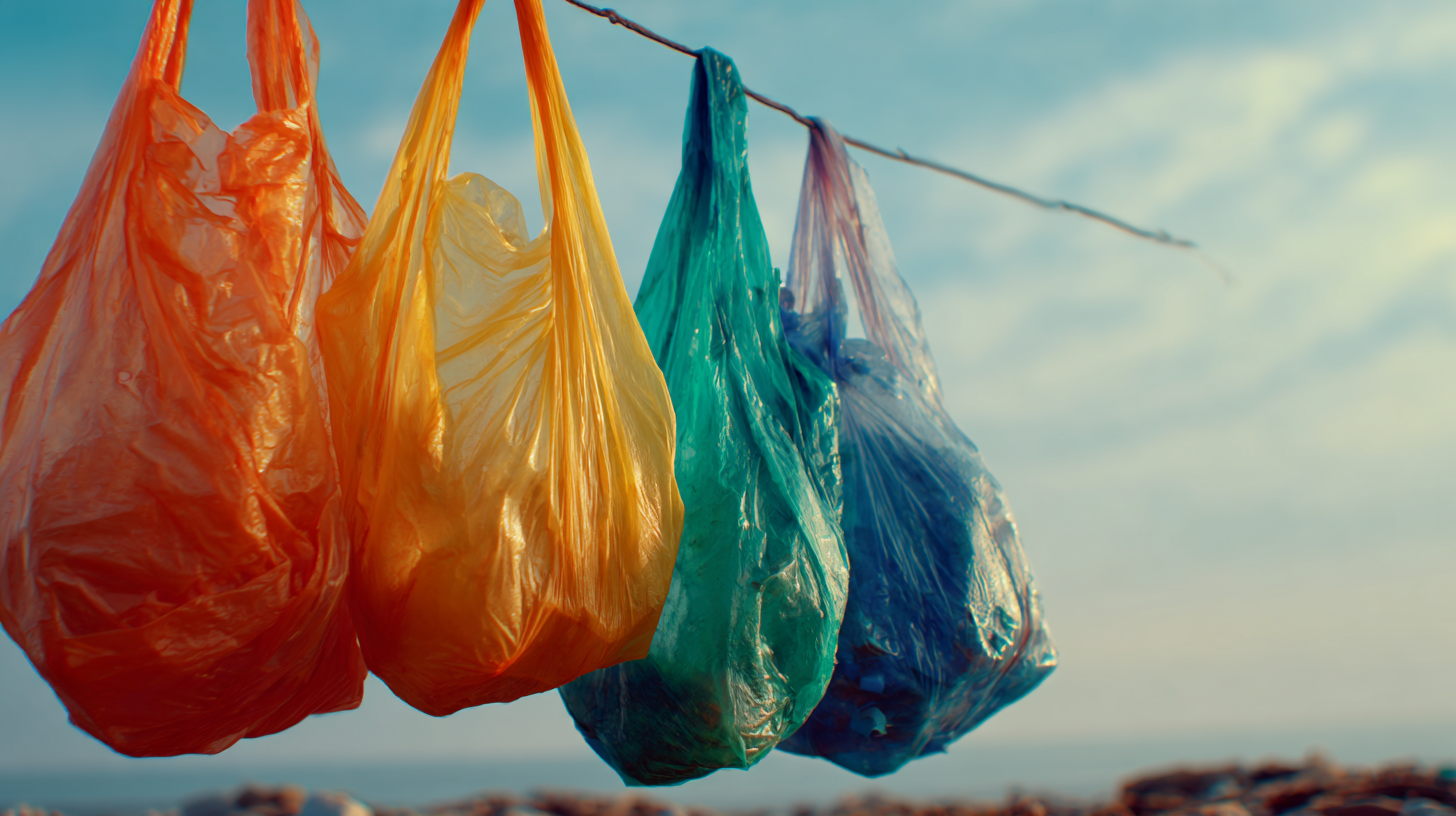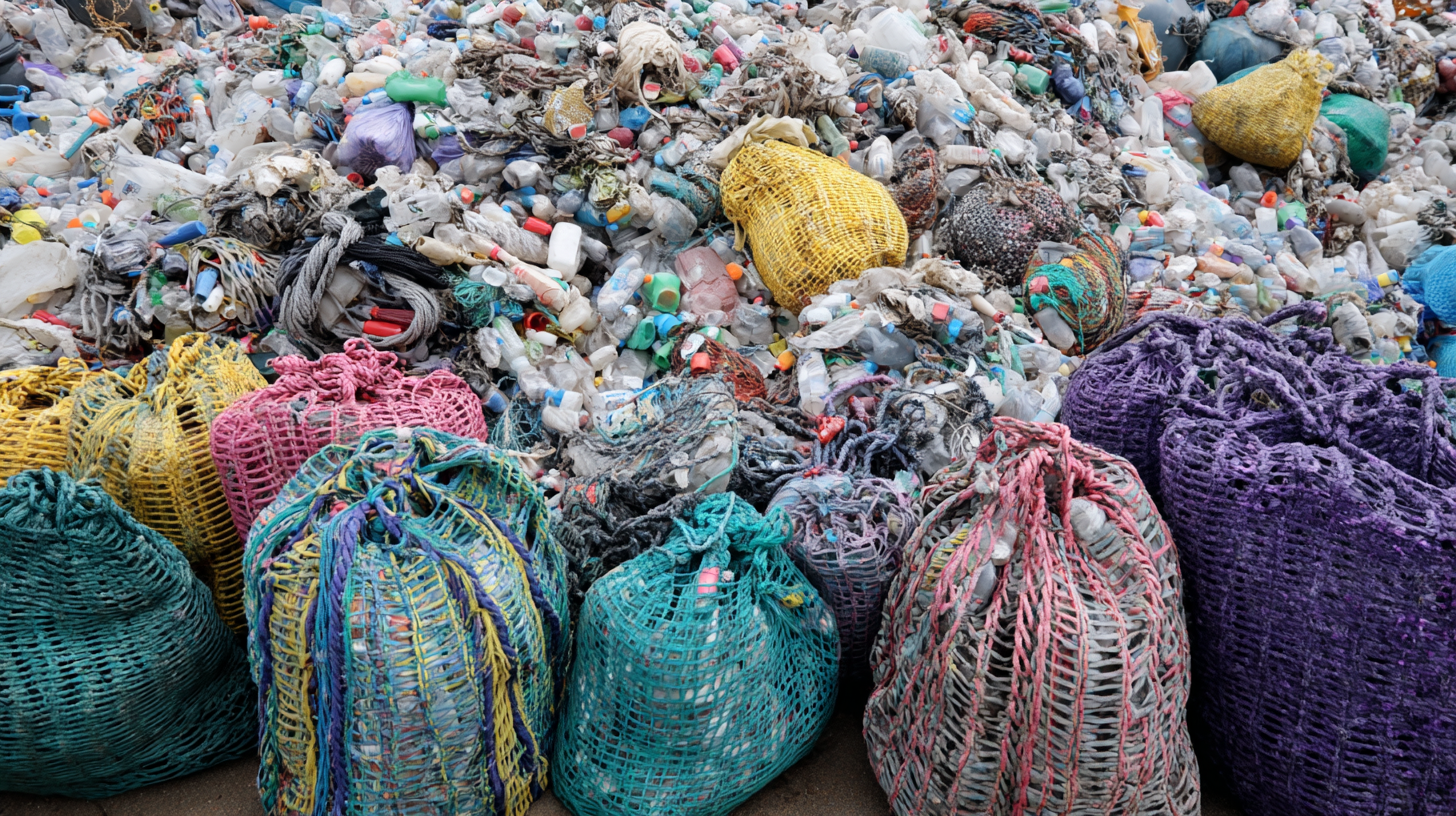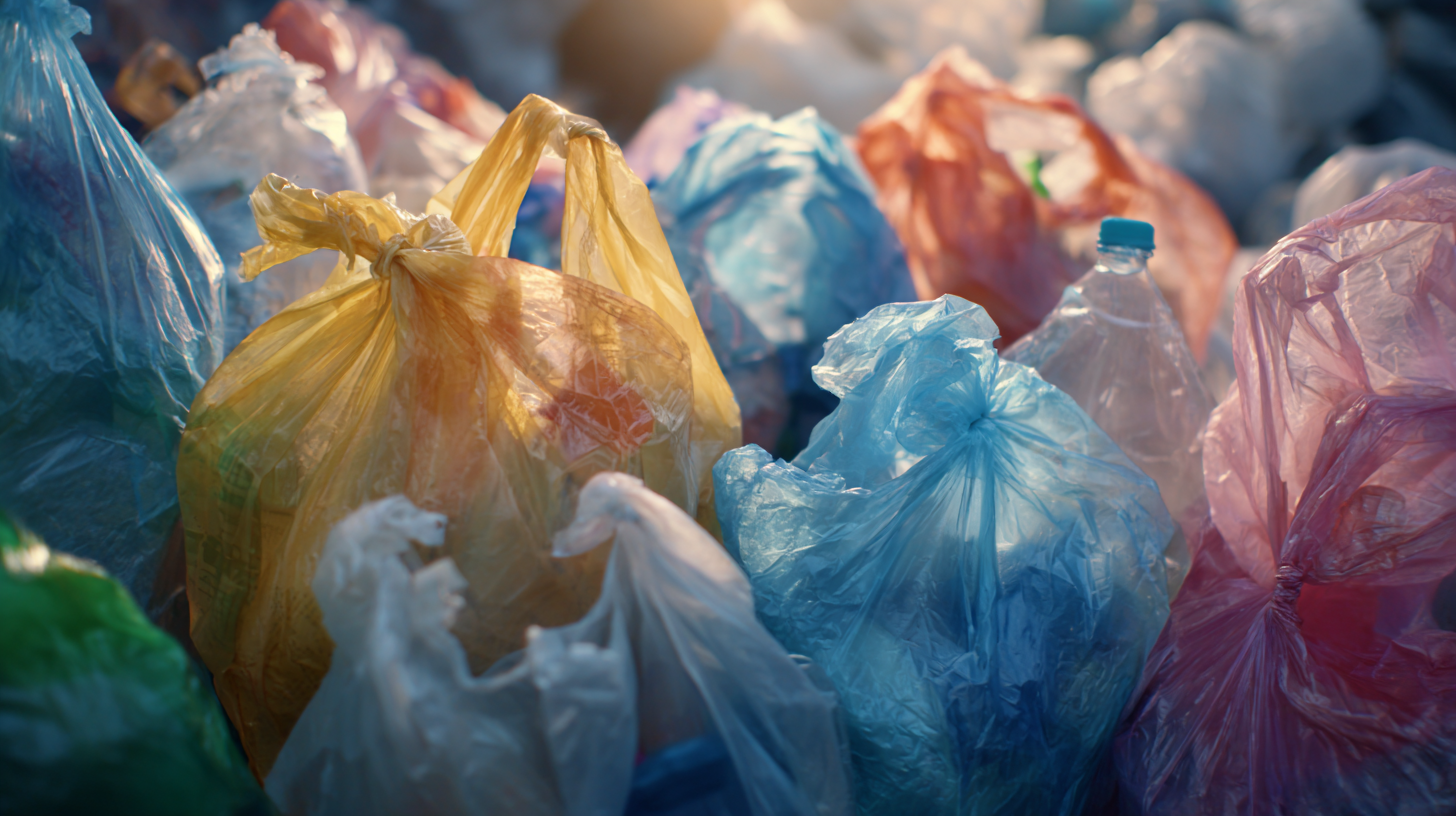 Plastic pollution has become a critical environmental issue, with recent reports indicating that approximately 300 million tons of plastic are produced globally each year, a significant portion of which ends up in oceans and landfills. In fact, it is estimated that by 2050, there could be more plastic than fish in the oceans if current trends continue. This alarming statistic highlights the urgent need for sustainable solutions to combat plastic waste.
Plastic pollution has become a critical environmental issue, with recent reports indicating that approximately 300 million tons of plastic are produced globally each year, a significant portion of which ends up in oceans and landfills. In fact, it is estimated that by 2050, there could be more plastic than fish in the oceans if current trends continue. This alarming statistic highlights the urgent need for sustainable solutions to combat plastic waste.
Enter Recycled Bags, an innovative approach that has the potential to make a substantial difference. These bags, made from repurposed materials, can significantly reduce our reliance on single-use plastics. Studies suggest that using recycled materials instead of new ones can cut greenhouse gas emissions by up to 50%. By embracing Recycled Bags, consumers and businesses alike can play a pivotal role in transforming waste into a resource, ultimately contributing to a healthier planet and a significant reduction in plastic pollution.
Plastic waste has become a significant environmental threat, causing harm to ecosystems and wildlife. The convenience of single-use plastics has led to their widespread use, but this has resulted in billions of tons of plastic polluting our oceans and landscapes. Marine animals often ingest or become entangled in plastic, leading to severe injuries and, in many cases, death. This catastrophic scenario highlights the urgent need for solutions that address the growing plastic crisis.
Recycled bags present a practical alternative to traditional plastic bags, drastically reducing the demand for new plastic production. By opting for recycled materials, we can lessen the volume of waste that ends up in landfills and oceans. These bags not only serve as a symbol of environmental responsibility but also contribute to a circular economy where materials are reused and repurposed. Transitioning to recycled bags can create a significant impact, showing that individual choices collectively lead to large-scale change in reducing plastic pollution and protecting our planet.
| Category | Material Type | Plastic Waste Reduction (kg/year) | CO2 Emissions Reduced (kg/year) | Water Saved (liters/year) |
|---|---|---|---|---|
| Recycled Polyethylene | Plastic Bags | 2000 | 450 | 5000 |
| Recycled PET | Water Bottles | 1500 | 350 | 3000 |
| Biodegradable Materials | Compostable Bags | 1800 | 400 | 4500 |
| Recycled Cotton | Reusable Bags | 2500 | 500 | 7000 |
Innovative recycling processes are pivotal in the production of recycled bags, which play a significant role in combating plastic pollution. As the demand for sustainable materials grows, manufacturers are adopting advanced techniques that transform waste into high-quality products. By utilizing state-of-the-art technology, companies can efficiently process plastic waste, refining it into usable raw materials for creating bags that are both durable and eco-friendly. This innovative approach not only reduces reliance on virgin plastics but also minimizes waste, contributing to a circular economy.
The significance of recycling extends beyond bags; it encompasses various industries, including the rapidly evolving sector of battery recycling. As electric vehicles gain popularity and the lifecycle of batteries comes into question, the need for effective recycling solutions becomes critical. The technological advancements that allow for the recovery of essential materials from spent batteries can mirror the processes used in bag production, highlighting a shared commitment to sustainability and resource conservation. By embracing these innovative practices, we can pave the way for a greener future while simultaneously addressing the challenges posed by plastic pollution and electronic waste.
The use of recycled bags in daily life presents numerous benefits that extend beyond mere convenience.
According to a report by the World Economic Forum, plastic waste could outweigh fish in the ocean by 2050 if current trends continue, underscoring the urgency of reducing our plastic footprint.
Recycled bags not only help mitigate this alarming statistic but also contribute to a circular economy.
Utilizing recycled materials not only conserves natural resources but significantly reduces greenhouse gas emissions.
A study from the Environmental Protection Agency indicates that manufacturing a bag from recycled materials uses 70% fewer resources compared to its virgin counterpart.
Moreover, the shift to recycled bags encourages sustainable consumer behavior.
A survey conducted by EcoFocus Worldwide highlights that 63% of consumers are willing to pay more for products made from recycled materials.
This demonstrates a growing awareness and preference for sustainable options among the public.
By incorporating recycled bags into our daily shopping habits, we support a market that prioritizes environmental stewardship, ultimately leading to a decrease in the demand for single-use plastics.
This simple change can play a crucial role in the broader efforts to combat plastic pollution and foster a healthier planet.
The issue of plastic pollution has reached alarming levels, and consumer awareness plays a crucial role in combating this crisis. Understanding the impact of our consumption choices is the first step toward behavioral change in waste management. When consumers are informed about the detrimental effects of single-use plastics, they are more likely to opt for sustainable alternatives, such as recycled bags. Education campaigns can effectively highlight the importance of reducing plastic waste and encourage individuals to make conscientious decisions that benefit the planet.

Furthermore, fostering a culture of responsibility can significantly influence consumer behavior. By promoting initiatives that reward sustainable practices, such as using recycled bags, we can incentivize individuals to make environmentally friendly choices. Community involvement in recycling programs and workshops on waste reduction can deepen consumer commitment to sustainable practices. Engaging with the issue at a local level enables individuals to see the direct effects of their actions, thus reinforcing the importance of their participation in reducing plastic pollution. Together, increased awareness and actionable steps can lead to meaningful change in waste management practices, ultimately contributing to a healthier planet.
The role of legislation in promoting recycled materials is critical to addressing the plastic pollution crisis. Governments around the world are recognizing the urgency of the situation and are implementing policies that encourage recycling and the use of recycled products. For instance, some regions have introduced incentives for manufacturers to produce goods from recycled materials, while others enforce strict regulations on single-use plastics. These legislative measures not only facilitate the transition to a circular economy but also raise awareness about the importance of recycling among consumers.

Tips for individuals to support recycled materials include choosing products that are made from recycled content and advocating for stronger policies in your community. Additionally, participating in local recycling programs and educating others about the benefits of recycling can further amplify these efforts. Remember to check the recycling guidelines in your area to ensure that you are disposing of materials properly, as this plays a crucial role in the efficiency of recycling systems.
As we navigate the complexities of waste management, effective legislation and informed consumer choices work hand in hand to create a sustainable future. By pushing for policies that prioritize recycled materials and actively engaging in recycling practices, we can collectively reduce plastic pollution and make a considerable impact on protecting our planet.





